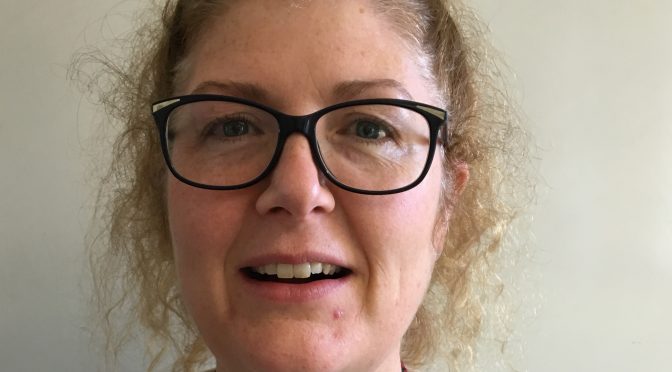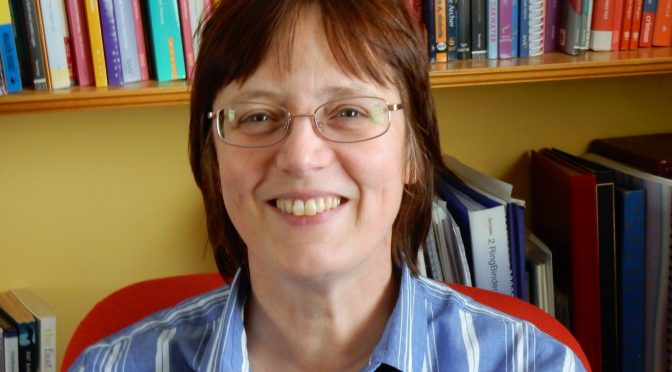Lynda Hughes
SYTP Practice Consultant
Why do you think the role of Practice Consultant is necessary as part of SYTP?
My role is a ‘bridge’ between practice and academia, being based part time at the University and part time in Children’s Services. Some local authority social work employers have felt that some newly qualified social workers entering the service don’t always have a satisfactory level of foundation knowledge and skill and that it would be helpful for there to be closer link between the University and practitioners to bring practice knowledge and skills back into the lecture room. It was also recognised that social workers don’t always practice in an evidence informed way that they learned about at university, so being able to push this through my link with the university and my involvement with local authority social workers and managers is also beneficial. Being able to see ‘both sides of the same coin’ as a Practice Consultant is really helpful in seeing where the gaps are and where the potential is to improve the quality of what we do.
It has taken a while to have an appreciation of how the university teaches and supports its’ social work students but university staff have been really receptive to our involvement and are looking seriously at how they can tailor parts of their curricula for newly qualified and experienced social workers. They are also helping us to try to become more research minded in our everyday practice within children’s services. Some of the developments are small scale at the moment but I think everyone is committed to rolling out these developments more widely once we are sure they are going to be helpful.
Describe a typical day…
I’ve found the academic timetable is like the seasons – certain things happen at certain times of the year. There’s a reassuring rhythm to this as you know what you should be doing usually well in advance – very different to social work! September, when the MA Social Work course starts is really frenetic. I was allocated 4 tutees this year, which has involved seeing them for a set number of sessions each semester. I also meet with them at the start of and mid-way through their social work practice placements. We’re just about to start midway review meetings and I’m really looking forward to hearing from them and their practice educators about what they have been learning and how they are meeting the required standards. University is a lot quieter when students are on placement but it doesn’t mean it’s any less busy. This semester I have been involved in some of the teaching on the Advanced Professional Framework (APF) Child Development course that some of the experienced social workers across the partnership have been attending. With a colleague I’ve also been working on the ASYE Accreditation Module that will enable newly qualified social workers across the partnership to gain university credits for some of the written work they have to do for the ASYE portfolio. I’m also involved in interviews for admission to next year’s MA Social Work programme. I will be supervising some students with their dissertation projects once they return from placement. In the first semester I contributed to several of the MA course modules such as Law and Contexts, Skills and Values and hope to do more of this next academic year.
Toughest problem in the post?
I wouldn’t call it a problem but the cultures and working environments of the local authority and university are quite different so that takes some getting used to. Perhaps because I’m not as embedded at the university – or because my workload in local authority children’s services is always very busy, I have to be careful not to let local authority work encroach into university time. It is something I’ve always tried to be disciplined about – and it’s getting less painful as time goes on!
What is the most rewarding part of this post?
I have really enjoyed and benefitted from working with the teachers and lecturers at the university and getting a better understanding of their work to inform my own thoughts. I think as a team we are starting to do some useful work on a number of fronts to better marrying the practical and theoretical aspects of the social work and that can only be a good thing for students, social workers and ultimately the children and families we work with.
I enjoyed contributing to a law module to which I brought a change in case law which has fundamentally changed the way social workers have to write court reports. We were able to give the students an opportunity to practice this change in court reports.
I am also enjoying acting as a tutor and having the opportunity of visiting them at their placements within the partnership.
Is it going to get more interesting as it goes along?
University is very open and positive with the input myself and Danny Moonman (the adult practice consultant) have had on some individual lecture design.
I am co-delivering the first Child development and Communication module of the Advanced Practitioner Framework and we are ready to change this for the next intake depending on the feedback we get.
I will get a better understanding of teaching, the sociological department and academic year. Once I can put this in context I will have a deeper level of understanding of where I fit in and where I can contribute. I will be involved in more teaching and also taking on dissertation students, which will stretch me.

